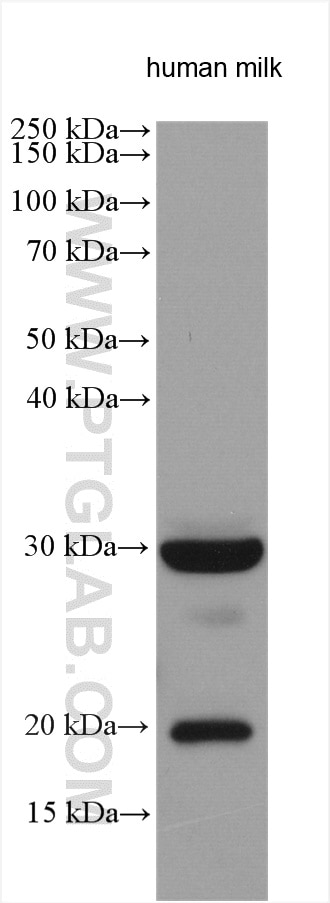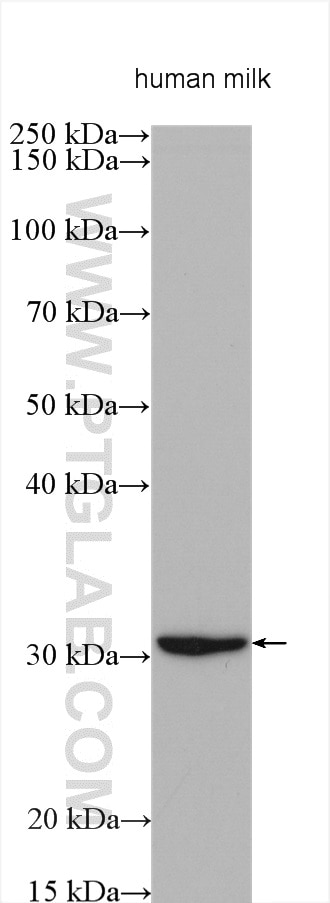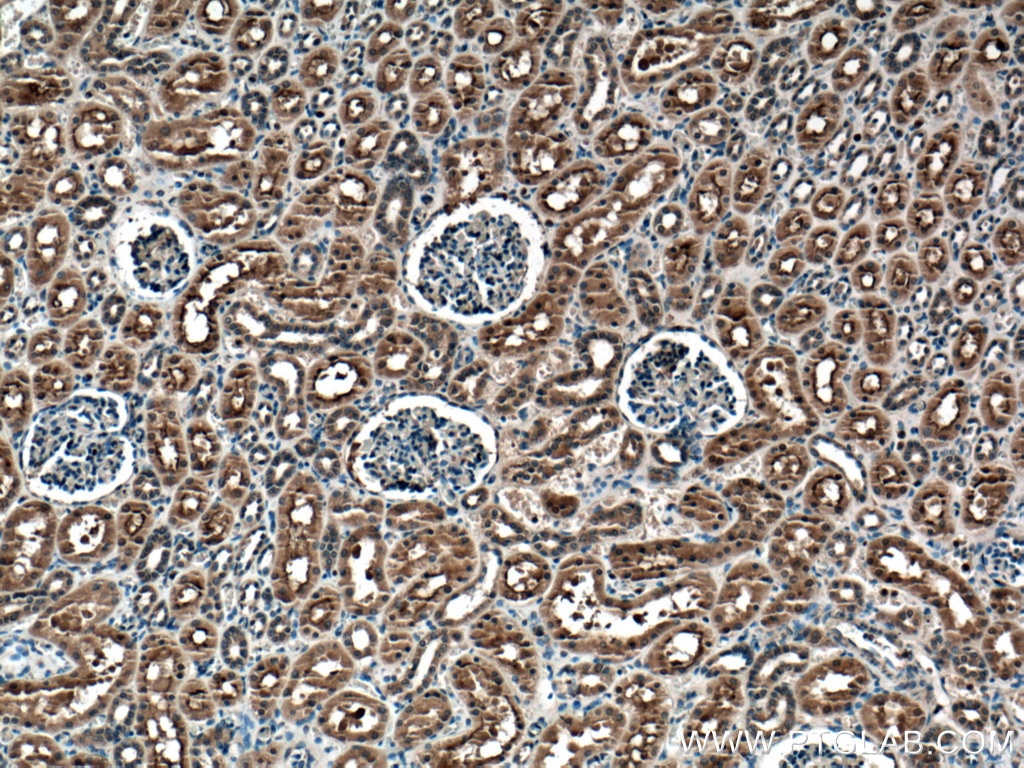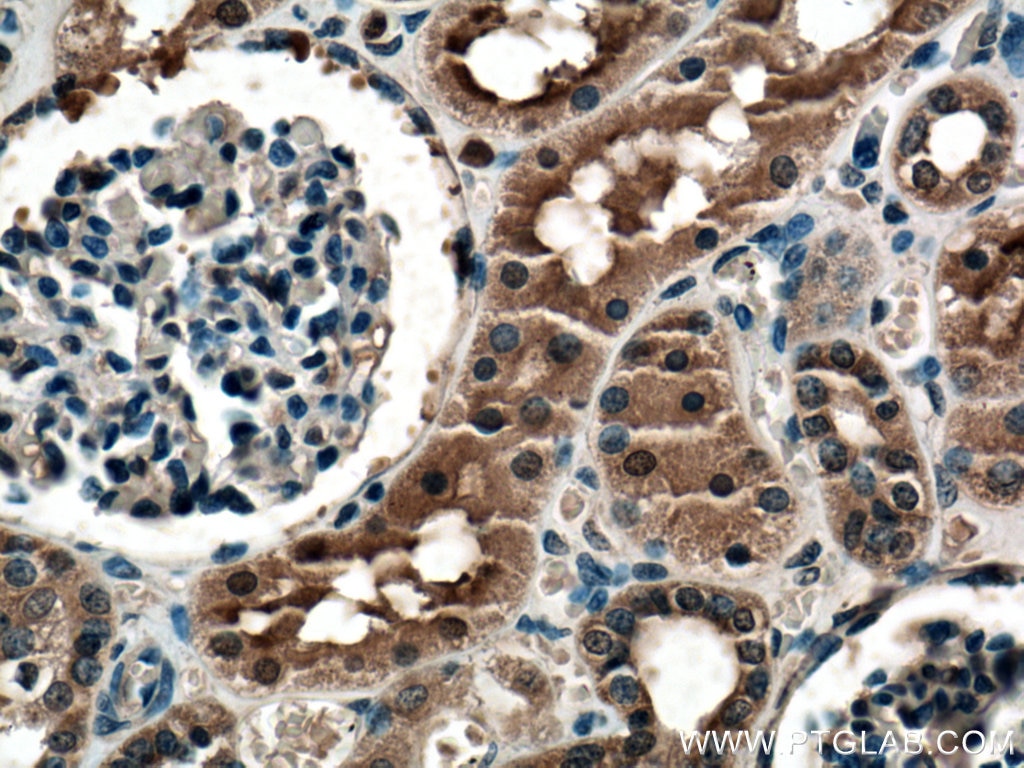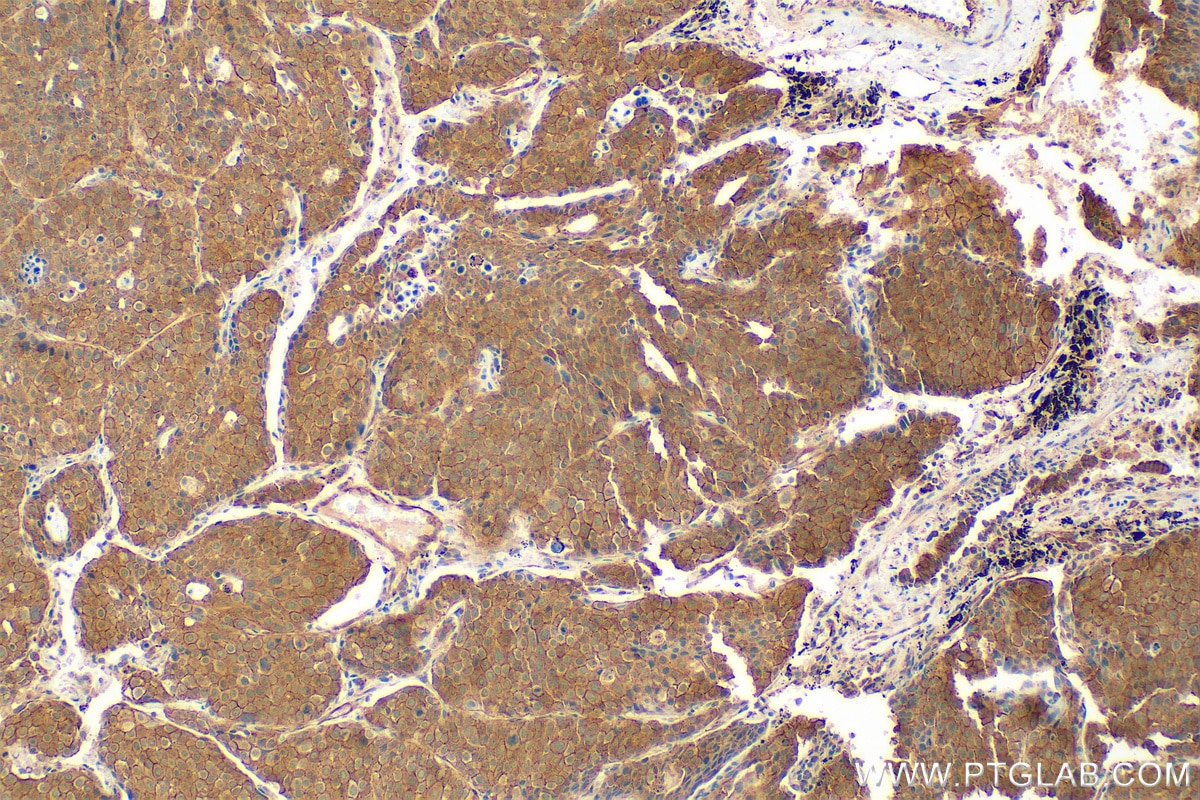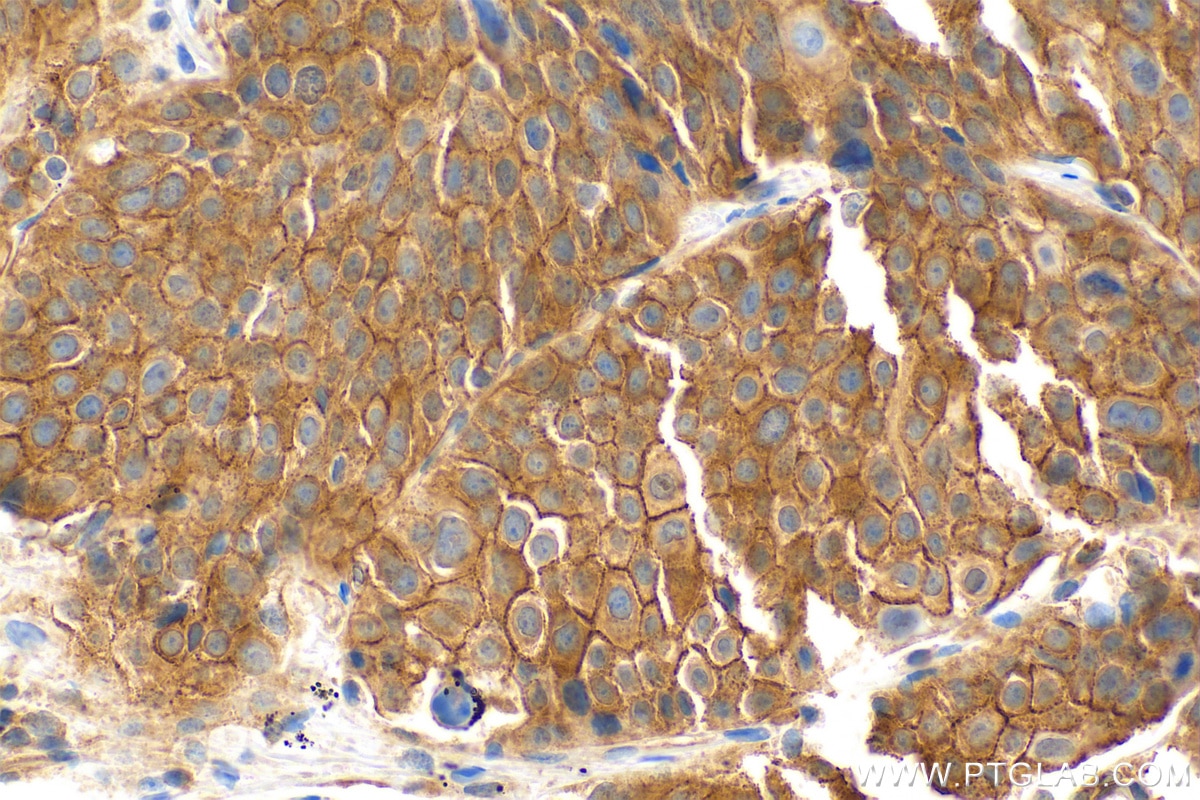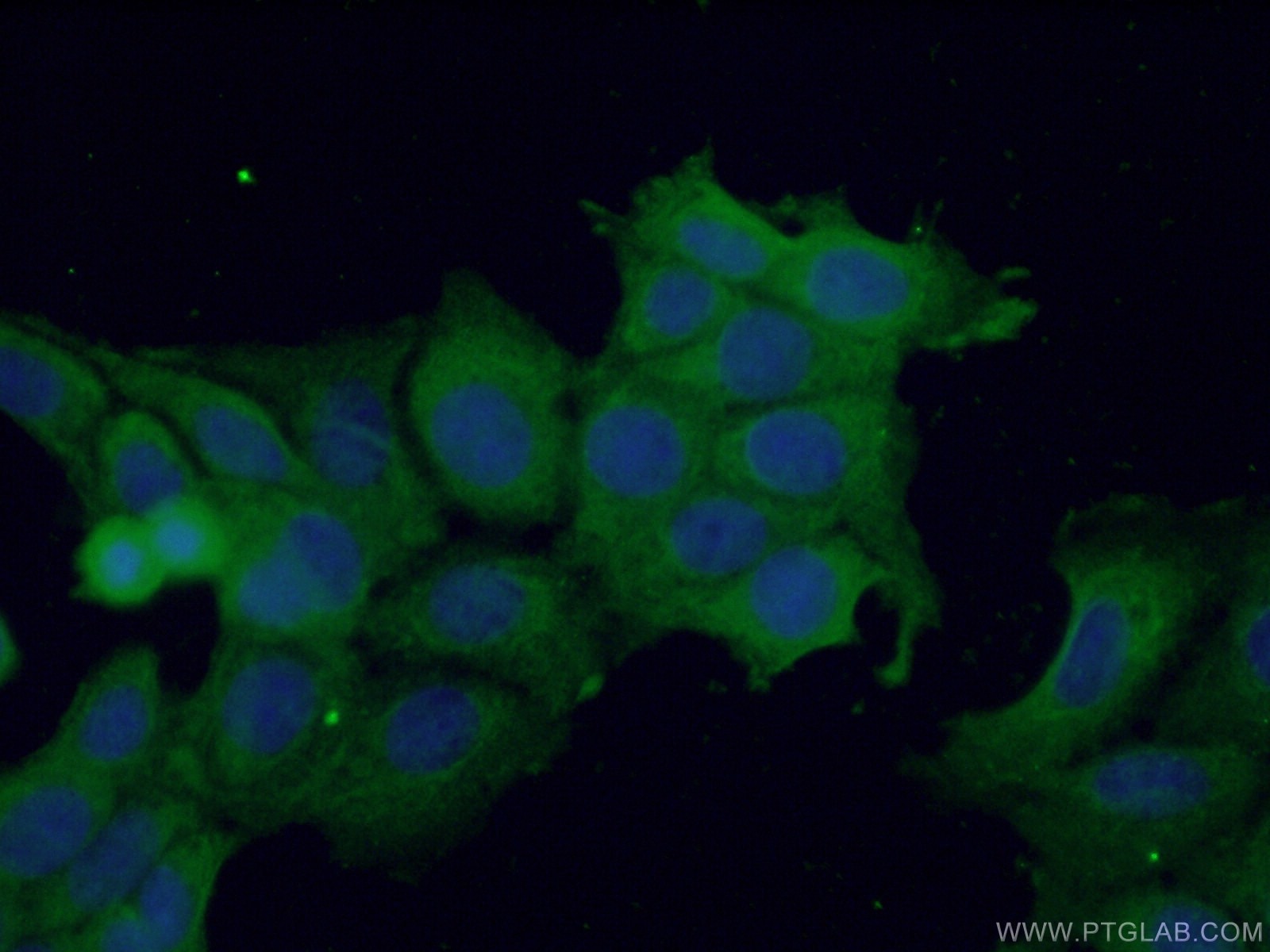- Phare
- Validé par KD/KO
Anticorps Polyclonal de lapin anti-TRAIL/CD253
TRAIL/CD253 Polyclonal Antibody for WB, IHC, IF/ICC, ELISA
Hôte / Isotype
Lapin / IgG
Réactivité testée
Humain
Applications
WB, IHC, IF/ICC, ELISA
Conjugaison
Non conjugué
N° de cat : 27064-1-PBS
Synonymes
Galerie de données de validation
Informations sur le produit
27064-1-PBS cible TRAIL/CD253 dans les applications de WB, IHC, IF/ICC, ELISA et montre une réactivité avec des échantillons Humain
| Réactivité | Humain |
| Hôte / Isotype | Lapin / IgG |
| Clonalité | Polyclonal |
| Type | Anticorps |
| Immunogène | TRAIL/CD253 Protéine recombinante Ag25746 |
| Nom complet | tumor necrosis factor (ligand) superfamily, member 10 |
| Masse moléculaire calculée | 281 aa, 33 kDa |
| Poids moléculaire observé | 33 kDa, 20 kDa |
| Numéro d’acquisition GenBank | BC032722 |
| Symbole du gène | TRAIL |
| Identification du gène (NCBI) | 8743 |
| Conjugaison | Non conjugué |
| Forme | Liquide |
| Méthode de purification | Purification par affinité contre l'antigène |
| Tampon de stockage | PBS only |
| Conditions de stockage | Store at -80°C. 20ul contiennent 0,1% de BSA. |
Informations générales
TRAIL, also known as CD253 or TNFSF10 (tumor necrosis factor superfamily member 10), is a typical death ligand expressed on natural killer cells and cytotoxic T lymphocytes. This protein preferentially induces apoptosis in transformed and tumor cells, but does not appear to kill normal cells although it is expressed at a significant level in most normal tissues. TRAIL induces apoptotic cell death in cancer by binding to its functional death receptors, death receptor (DR) 4 (TNFRSF10A/TRAIL-R1) and DR5 (TNFRSF10B/TRAIL-R2) to activate the extrinsic apoptosis pathway. TRAIL also activates c-Jun N-terminal kinase (MAPK8/JNK) and the transcription factor nuclear factor-κB (NFκB). The binding of this protein to its receptors has been shown to trigger the activation of MAPK8/JNK, caspase 8, and caspase 3.
